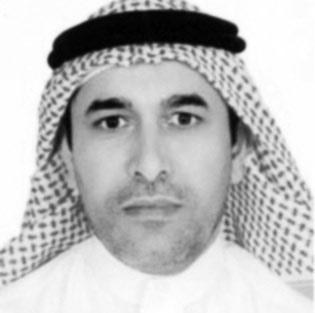Another Iraq in the making

Recently, Moscow and Washington agreed to convene an international conference on Syria to discuss the formula for a transitional government in Syria. While the US has made it clear that it does not see any role for Syrian President Bashar Assad in the future setup, Iran would like to use the international conference to delay a decisive action on the Syrian crisis. Tehran would like to wait till the balance of power on the ground tips in Assad’s favor after the regime gets more weapons and ammunitions from Russia.
Meanwhile, Israel is closely watching the situation as Iran is mounting pressure on Assad to transfer weapons to Hezbollah. Equally important is the fact that the leadership of Iraqi Kurdistan announced recently that there would be a possibility for an understanding with Turkey over the Syrian crisis. This announcement assumes significance as the PKK is retreating its forces from Turkish soil. Also, the United States, along with 41 countries, is holding naval drills in the Gulf in what appears to be a coded message for Iran.
While Iran is backing Assad to the hilt, it is also conducting negotiations over the future of Syria. All Tehran is trying to do is to effect changes on the ground in Syria by trying to create a nucleus for an Alawite enclave to complement that of Hezbollah in Lebanon. Iran would like to see a similar international conference like the one held on Iraq and attended by the Iraqi opposition. Iran, supported by Russia, may secretly come to an agreement to impose a new political setup as it did with the United States with regard to Iraq. Iran is trying its best to either keep Assad in power or reach an agreement that serves its interests as well as Russia’s in a post-Assad Syria.
Given these ulterior objectives, one can argue that the international conference on Syria is a smokescreen that conceals the tacit agreement among Tehran, Moscow and Damascus to divide Syria and establish a mini-Alawite state while keeping the rest of the country for the Sunni majority. And yet, Washington seeks to repeat the Iraq experience of sectarian and ethnic lines. Such a move would emasculate Syria and create weak political entities. There will be a new Al-Maliki who will be supported by Turkey and other countries in the region.
Missing from these grand schemes is the Syrian people. Undoubtedly, Iran, Moscow, and Tel Aviv will be the major players in the conference over the future of Syria. Nonetheless, who will guarantee the success of the conference? Washington imposed the solution in Iraq through employing forces. Also, Iran imposed its presence in Iraq through trained Shiite parties. Tehran fears the failure of the conference would prompt military intervention at a time when Israel is preventing the transfer of weapons to Hezbollah.
Iranian Foreign Minister Ali Akbar Salehi recently visited Lebanon Jordan. The visits carried with them both incentives and threats. In Lebanon, there is Hezbollah that carries out the instructions coming from Tehran and in all practical terms defends Assad, while in Jordan, the situation is different. Implicit in the visit was an Iranian threat that Tehran would not hesitate in creating internal instability in Jordan. The riots in the south of Jordan came about after the Iranian ambassador in Amman met with some figures from the city of Ma’an in the south. The events took place prior to the visit of the Iranian minister. It is well known that countries put pressures on each other by using different tools. In fact, many observers refer to Iraqi, Syrian, Iranian messages to Jordan that include tacit threats to stir up internal revolt in Jordan.
Washington seems to be in no hurry, but it has credible intelligence information that Assad is in a very awkward position and that his options are gradually dwindling. This American patience may have some political dimension. It may add to the psychological turmoil of Assad and may lead to geopolitical changes. This can only take place when things within Syria reach their peak. Washington knows time is detrimental for the Syrian forces.
The conference will most likely be convened by the end of this month. It is less likely that things will change in Syria when the conference convenes. But muscle-flexing and military drills come within the context of putting pressure. That is was why Tehran sent Jordan a message of threat. Meanwhile, Israel sent a clear message to Tehran and Moscow that its airstrike was never meant to support the opposition but only to prevent the transfer of weapons to Lebanon. That said, Israel is prepared for any reaction from Syria. Netanyahu made it perfectly clear that his country would play an active role in changing the balance of power in the region if Hezbollah or Iran or Syria targets Israel. He points to the fact that Damascus airport has come under the control of Hezbollah and the Revolutionary Guard.
In conclusion, one can make the case that Assad and his ally, Hezbollah, are in a critical position. This begs the question whether Assad or Hezbollah can react in any possible way or whether they coordinate with Iran and seek Al-Qaeda’s help to carry out attacks on Israel or American targets. This can lead to a confrontation that neither Hezbollah nor Assad would like to experience.
Email: [email protected]










































